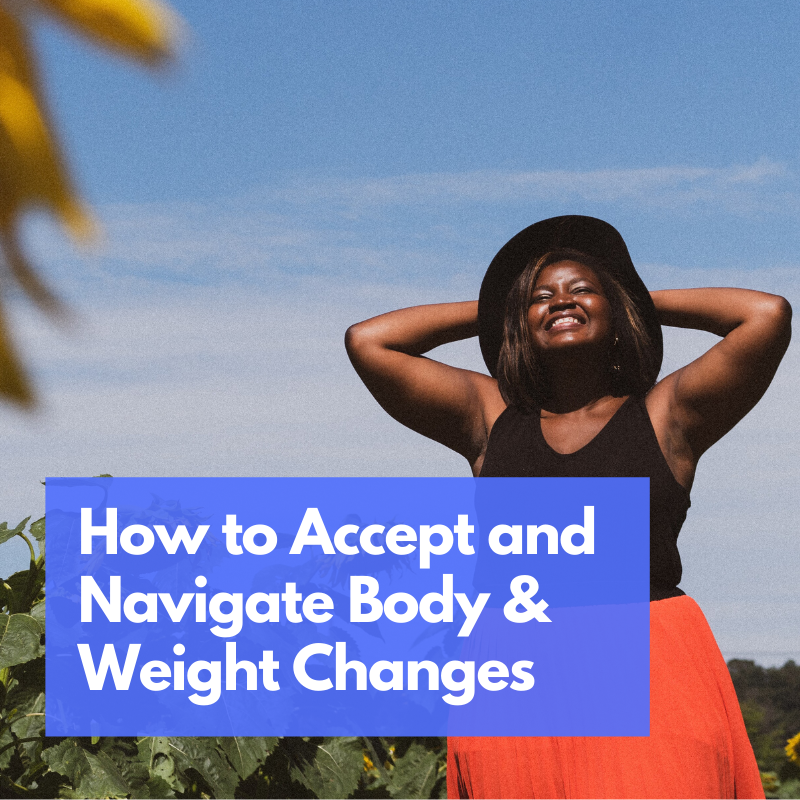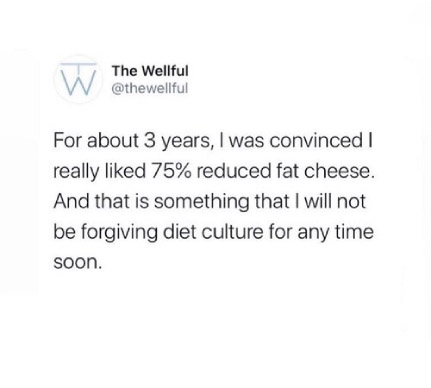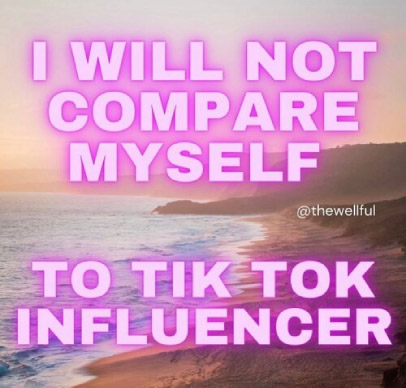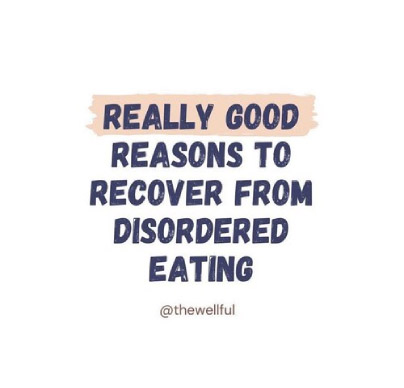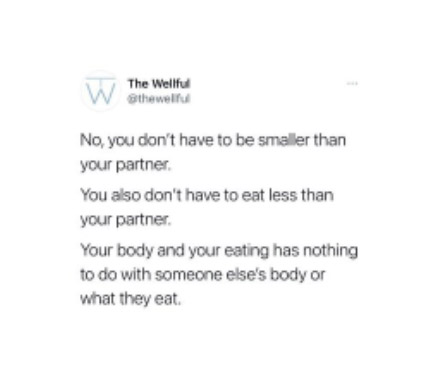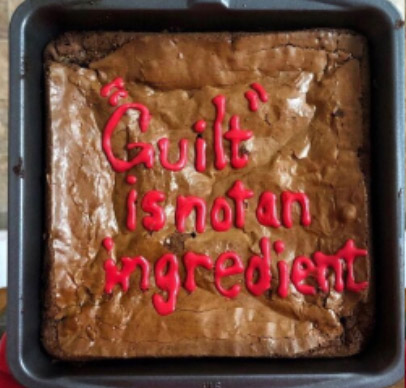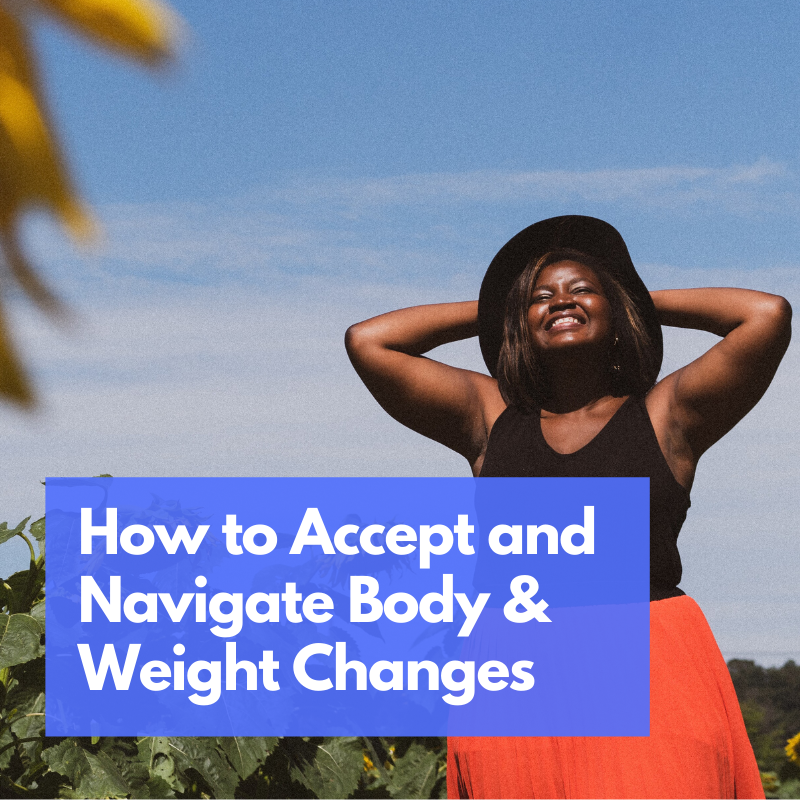
When moving towards intuitive eating, away from using external rules, and healing from disordered eating, it is expected and healthy that weight gain will likely co-occur in the process. This is because your natural weight is being suppressed and kept artificially lower than it’s meant to be. It can certainly be distressing to feel and see your body changing and these feelings are completely valid and expected given the toxic culture we live in where larger bodies are criticized and judged while smaller bodies are valued.
The weight loss industry is currently estimated to be worth 72 billion dollars. That’s a whole lotta $$ being invested in making sure that you feel badly about your body. The good news is – you can take steps to protect yourself from these messages, move to a space of caring for your body rather than controlling it, build resiliency, and make choices based on internal cues and mind knowledge.
Let’s dive in – when it comes to a concern about weight changes, what is at the root of this fear? Is it about health? We know that health involves much more than weight. In fact, according to the social determinants of health – about 30% of population health includes health behaviors like tobacco and alcohol use, diet & exercise, and unsafe sex which means that diet and exercise account for less than 30% of a populations health outcomes. This is not to say that diet and exercise are not important but just to point out that it’s not the whole picture. We rarely hear about the impact of environment, health care access, education, weight stigma, weight cycling, mental health, and so on. I’m sure most of you reading this (as I once did) feel or have felt that if you just ate and exercised the “right way” that your health would be completely in your control, and of course, because that’s the messaging we get. Really, when we start to think about where this fear stems from it’s rooted in fatphobia (more on that below).
When I’m working with clients on body image and accepting weight gain there are a few areas I start with to focus on:
Fatphobia & Weight Stigma
First and foremost, challenging learned beliefs about health and larger bodies and the inherent belief that smaller bodies are “better” and “healthier”.
Most epidemiological studies find that people who are “overweight” or moderately “obese” live at least as long as “normal” weight people, and often longer. (In quotations because we know that BMI is useless and stigmatizing.) This is a great place to start for exploring fatphobia and weight bias. It’s also important to point out that regardless of a person’s health status, all bodies deserve respect and autonomy.
Research also suggests that body image may have a much bigger impact on health than body size. In addition, we know that weight loss is unattainable in the vast majority of people and often in the small percent of those that can lose weight and keep it off long-term (5+ years), this also involves maintaining disordered behaviors and it takes up a huge percent of time and brain space often at the expense of mental health.
A team of UCLA researchers reviewed 31 long term studies on the effectiveness of dieting and concluded that dieting is a consistent predictor of weight gain—up to two-thirds of the people regained more weight than they lost (Mann 2007).
Grieving the thin ideal
As you start to accept that your body’s natural happy place might not be the idealized version you were imagining, this will involve grieving the thin ideal.
Thin-ideal internalization refers to the extent to which an individual cognitively “buys into” socially defined ideals of attractiveness and engages in behaviors designed to produce an approximation of these ideals
AND
Thin-ideal internalization is thought to directly foster body dissatisfaction because this ideal is virtually unattainable for most females.
-Thompson and Stice, 2001
Exploring what this is really about
In addition to digging into your thoughts and feelings on weight gain and larger bodies, becoming more aware of the intentions behind changing your body. Some examples of journaling prompts to explore your healing journey & body image work are listed below:
-
What else am I gaining (other than weight)? For example – freedom, connection, fun, brain space.
-
Was I really happier/more confident in a smaller body?
-
How does this make me feel? Meaning how does actively trying to change your body make you feel?
-
What am I hoping for by being in a smaller body?
-
What are my values? Great worksheet on this here.
-
What are the pros/cons of weight loss? What has dieting been like for me in the past? What was my mood like during those times?
This is an ever-evolving process that takes a lot of un-learning and challenging old beliefs to come to a place of peace with your body. There is so much more to say on this topic but my hope is that these ideas and concepts will help get you started and take something that feels overwhelming and make it feel more actionable.
Bonus! Crystal has a self-paced Body image Course available with a 20% discount with code SUMMER 20, discount available until July 4th.
Resources:
NCHHSTP Social Determinants of Health
Medicare’s Search for Effective Obesity Treatments: Diets Are Not the Answer
Weight Science: Evaluating the Evidence for a Paradigm Shift
Looking for 1:1 virtual support on your relationship with food & body image? Click here to see coaching packages and book a free discovery call this week!

